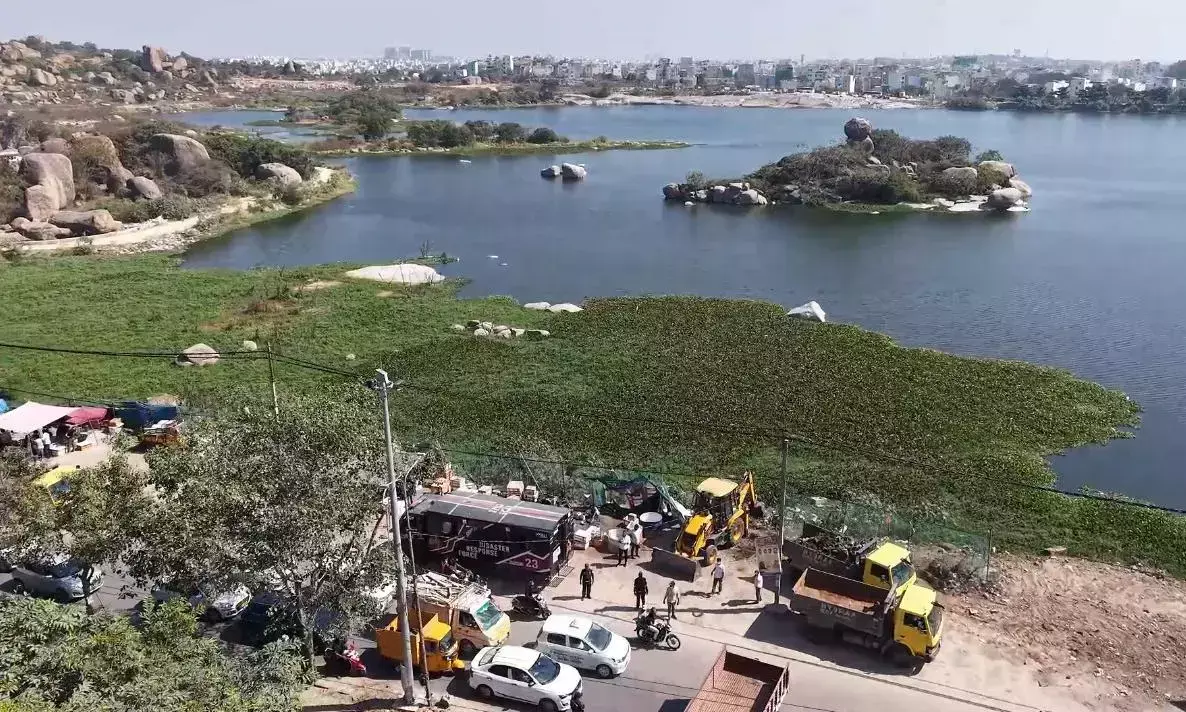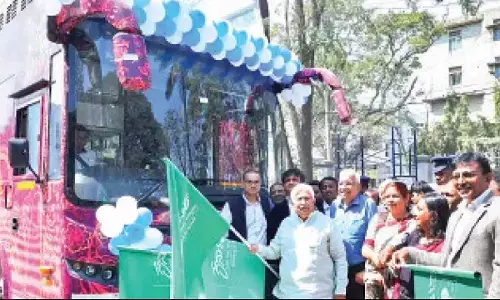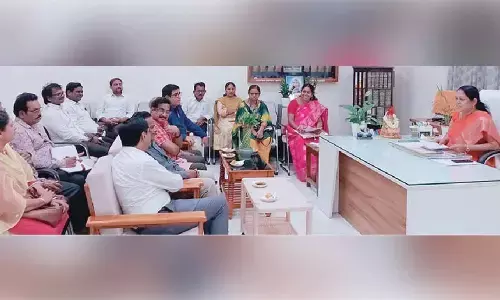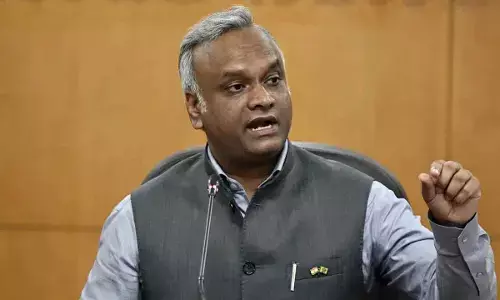Biased media & its education

Media educates. Perhaps more than a university; a broadsheet newspaper presents a wide variety of news chronicling history of the day. It is said media reports history in a hurry. But why always media projects society in a negative shade? Why it prefers sensation to sensitivity? Whether media lost human concerns? Who will educate media?
What transforms the society is the education. Media communicates. University imparts objective education. Media tells what it wants the people to know. While broadsheet is still comprehensive, the TV tells about one or two issues its owner chooses to make. There are no editors and journalists, but chief executive officer and other executives dealing with the day’s information management.
The primary challenge is: Media is not ready to get educated. They are either busy or disinterested. Media is neither transparent nor does it ask for. Media does not question hibernation of truth, neglect of pendency and deliberate measure of killing transparency. Who has to educate this media?
Media educates. Perhaps more than a university; a broadsheet newspaper presents a wide variety of news chronicling history of the day. It is said media reports history in a hurry. But why always media projects society in a negative shade? Why it prefers sensation to sensitivity? Whether media lost human concerns? Who will educate media?
These are the questions I raised when I addressed the ‘All India Media Educators Conference’ in Jaipur on April 4, 2015 at Rajasthan University. They were discussing the role of media in social transformation. What transforms the society is the education. Media communicates. University imparts objective education. Media tells what it wants the people to know. While broadsheet is still comprehensive, the TV tells about one or two issues its owner chooses to make. There are no editors and journalists, but chief executive officer and other executives dealing with the day’s information management.
The primary challenge is: Media is not ready to get educated. They are either busy or disinterested. The conference educated future media persons and not the present press. Where is the space for being objective and neutral? If paid news is an unethical practice entrenched in every wing of media, the bias is its DNA. Media is generally negative because they are taught from the beginning that ‘bad news is good news, and good news is no news at all’. If dog bites man, it is no news. But if man bites the dog it makes a first page human interesting story. (There is a recent exception to it.
Dog’s bite of a man made news as dog lost its teeth, because victim had metallic leg!) The maxim applies only to crime news. Crime itself makes interesting news. In fact, media reports a lot of good news. Editorial, opinion, business, sports, politics, cinema, budget etc are not bad news; may be bad for being ‘paid news’. There is huge non-negative content in reporting Parliament, Assembly, Courts, press conferences by ministers, police officers and political parties, inaugurations and ceremonies participated by Governors and Ministers.
The VVIPS at Tirumala, masjid and churches are reported both in print and visual media. Hence ‘bad news is good news’ is no longer relevant. Journalism schools should unlearn such fundamental wrong notions. Besides senseless negative sensationalism, the media is infected by bias—of various kinds. More than profit motive, they are interested in promoting vested interests of their bosses. Media became a shield for securing business or political or religious interests. From a biased media, people get bias as ‘information or news or education’.
People should be educated to read the biased media properly, because it is not possible to remove bias from media owned by corporate giants, politicians, scamsters, caste leaders, religious heads etc. Those media existing since time immemorial are selling their majority shares to companies. Those in big media today sell their shares to corporate bigwigs. Freedom of expression is sandwiched between these barons and executives.
With the bias pre-dominant, the ‘truth’ is the victim and ‘interests’ of the people seriously suffer. Biased media compromises with the administrators. They bribe and corrupt them. They do not criticise but campaign for a price. The colour of bias is visible on the made up face of anchor, in the lipstick, whether male or female. From the selection of topic, guests to questions, every stage is laced with ganja of interest. In the process the truth goes into hiding. Satyameva Jayathe remains just a slogan, logo of state or centre, if not, title of a serial.
An unprecedented agitation emerged from rural Andhra Pradesh during 1993-94 for prohibition. Supporting the women’s agitation against alcohol, the media made it inevitable for each political party to keep this promise on the top of their manifesto. The NTR’s TDP won elections and signed the orders of Prohibition, till it is killed by Chandrababu’s TDP. (Before that NTR was killed) Then the hand in glove with the rulers, the media gradually killed prohibition and spread the alcohol all over the state again... social transformation, indeed! During those days of prohibition, in spite of defects in implementation, crime and pendency of cases was reduced. Peace is more valuable than the excise loss. None recognised it.
Besides alcohol, more dangerous factor than that, that facilitated increase in corruption and crime rate is ‘pendency’ or delay in dispensation of justice. Entire governance in the country is totally and deeply affected by the enormous delay in decision making by courts. At every given point of time, there are 20 per cent vacancies in District Judge positions. Hundreds of vacancies—though eligible candidates are waiting for promotion, for direct recruitment, in already sanctioned posts—are not filled. In the absence of so many district judges, the trial of grave crimes—rape, murder, dacoity—gets delayed and the criminals go out on bail. They get elected to Assembly and can become home ministers or chief ministers.
They can influence witnesses. In run over cases, innocent drivers confess to be at steering to save VIP motor killers (after twenty years). The governance goes pathetic. Without filling vacancies, the leaders of judiciary and politics now trying to fix five years time for litigation. None knows whether five years is for trial or appeal at High Court or only for Supreme Court? Civil society agitates for Lok Pal or RTI etc, not for filling up vacancies.
Transparency is a ray of hope in the stark darkness of corruption. But corrupt are so strong that the transparency is getting blurred and blocked. Media is neither transparent nor does it ask for. Media does not question hibernation of truth, neglect of pendency and deliberate measure of killing transparency. Who has to educate this media? I feel embarrassing and difficult to teach ‘media-ethics’ in journalist schools of newspapers and TV channels.
When I say, media is expected to be unbiased, the journalists under training laugh. They are right, because in previous class the general manager must have told him what interests they have to protect. Biased media generates yet another group of biased media to counter it. A Telugu reader and viewer must know how each channel blows ‘his master’s voice’. So-called watch dogs of yesteryear are lapdogs of corporate bosses today. The civil society, the fifth estate, should question the real estate stakes of ‘the fourth estate’.
By:Madabhushi Sridhar














